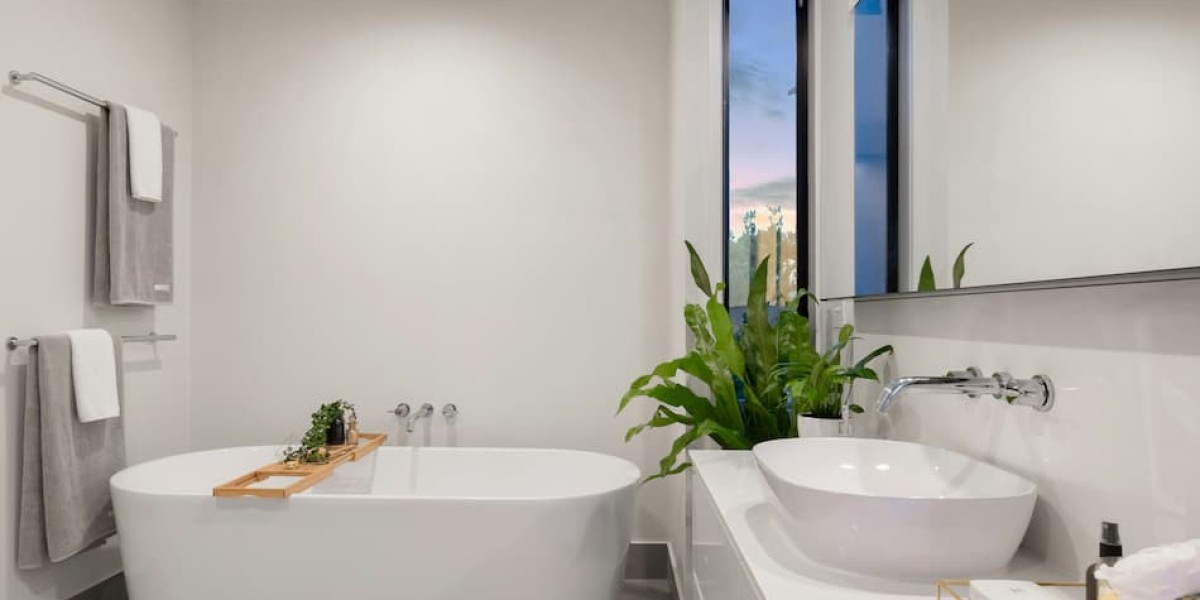This guide breaks down the different tile materials, their advantages and disadvantages, and which rooms they suit best, empowering you to make informed decisions for every space in your house.
At Bathroom Remodel Vancouver WA https://bathroomremodelvancouver.com/ recommends that you carefully consider the design of your bathroom to create a functional and aesthetic space that meets your needs and budget.
Understanding Tile Materials
Tile materials vary significantly in durability, maintenance requirements, and aesthetic appeal. Here's a breakdown of the most common types:
Ceramic Tile: Ceramic tiles are a popular choice due to their affordability and versatility. They are made from clay that is fired at high temperatures, making them durable and resistant to scratches and stains. Ceramic tiles are generally less dense than porcelain, making them easier to cut and install. They are suitable for various applications, including floors, walls, and backsplashes.
- Pros: Cost-effective, wide range of colors and styles, easy to install, relatively low maintenance.
- Cons: Less durable than porcelain, can chip or crack under heavy impact, higher water absorption rate.
Porcelain Tile: Porcelain tile is a type of ceramic tile that is fired at even higher temperatures, resulting in a denser and more durable product. This makes porcelain tile highly resistant to scratches, stains, and moisture, making it ideal for high-traffic areas and wet environments. Porcelain tiles are often through-bodied, meaning the color extends throughout the tile, making chips less noticeable.
- Pros: Extremely durable, highly resistant to scratches and stains, low water absorption rate, suitable for indoor and outdoor use.
- Cons: More expensive than ceramic, can be more challenging to install due to its density.
Natural Stone Tile: Natural stone tiles, such as granite, marble, slate, and travertine, offer a luxurious and elegant look. Each piece is unique, adding a touch of natural beauty to your home. However, natural stone requires more maintenance than ceramic or porcelain, as it is porous and can be susceptible to staining and etching.
- Pros: Unique and luxurious appearance, adds value to your home.
- Cons: Expensive, requires regular sealing and maintenance, can be easily scratched or stained.
Glass Tile: Glass tiles are known for their vibrant colors and glossy finish. They are often used for backsplashes, shower walls, and decorative accents. Glass tiles are non-porous and easy to clean, but they can be more fragile than other types of tile.
- Pros: Beautiful and vibrant, easy to clean, non-porous.
- Cons: Can be expensive, prone to scratching and chipping, shows fingerprints and water spots easily.
Quarry Tile: Quarry tiles are unglazed ceramic tiles made from natural clay. They are very durable and resistant to water and stains, making them suitable for high-traffic areas and outdoor use. Quarry tiles have a rustic, earthy appearance.
- Pros: Extremely durable, water and stain resistant, slip-resistant.
- Cons: Limited color and style options, requires regular sealing.
Choosing the Right Tile for Each Room
The best tile for each room depends on the specific needs and characteristics of the space.
Kitchen: The kitchen is a high-traffic area that is prone to spills and splashes. Porcelain or ceramic tile are excellent choices for kitchen floors due to their durability and ease of cleaning. For backsplashes, glass, ceramic, or natural stone tiles can add a touch of style.
Bathroom: Bathrooms are wet environments, so it's essential to choose tiles that are water-resistant and slip-resistant. Porcelain and ceramic tiles are ideal for bathroom floors and shower walls. Natural stone can be used, but it requires regular sealing to prevent water damage.
Living Room: The living room is a space where comfort and aesthetics are equally important. Ceramic, porcelain, and natural stone tiles can all be used in living rooms, depending on the desired look and feel. Larger format tiles can create a sense of spaciousness.
Bedroom: Bedrooms are generally low-traffic areas, so a wider range of tile options can be considered. Ceramic and porcelain tiles are popular choices for their durability and comfort underfoot.
Outdoor Spaces: For patios, decks, and other outdoor areas, it's crucial to choose tiles that are weather-resistant and frost-resistant. Porcelain and quarry tiles are excellent choices for outdoor use. Natural stone can also be used, but it requires more maintenance.
Tile Selection Considerations
Beyond material, several other factors should be considered when choosing tiles:
Size and Shape: Tile size and shape can impact the overall look of the room. Larger tiles can make a space feel bigger, while smaller tiles can add a more intricate design element.
Color and Style: The color and style of the tile should complement the overall décor of the room. Consider the existing furniture, paint colors, and other design elements.
Texture: Tile texture can add visual interest and can also impact safety. Textured tiles are often recommended for bathrooms and other wet areas to prevent slips and falls.
Grout: Grout is the material that fills the spaces between the tiles. The color and type of grout can significantly impact the overall look of the tile installation https://www.bathroomremodelvancouverwa.com/tile-contractors-vancouver-wa/.
Maintenance and Care
Proper maintenance is essential to keep your tiles looking their best for years to come. Regular cleaning with a mild detergent is typically sufficient for most tile types. Natural stone requires more specialized cleaning products and regular sealing.
| Tile Type | Maintenance Needs |
|---|---|
| Ceramic/Porcelain | Regular cleaning with mild detergent |
| Natural Stone | Regular sealing, specialized cleaning products |
| Glass | Regular cleaning, avoid abrasive cleaners |
Choosing the perfect tile for your home is an investment in both its beauty and functionality. By understanding the different tile materials, their pros and cons, and which rooms they suit best, you can create a home that reflects your personal style and meets your specific needs. Remember to consider your budget, the level of maintenance you are willing to undertake, and the overall design aesthetic you want to achieve.


![Netflix British Shows – Upcoming UK Favorites [2024]](https://followgrown.com/upload/photos/2025/09/OzfNAf4DRQXBZR6zTS81_07_dd125204f5f97cbfd8e8ea2f0682a184_image.png)
